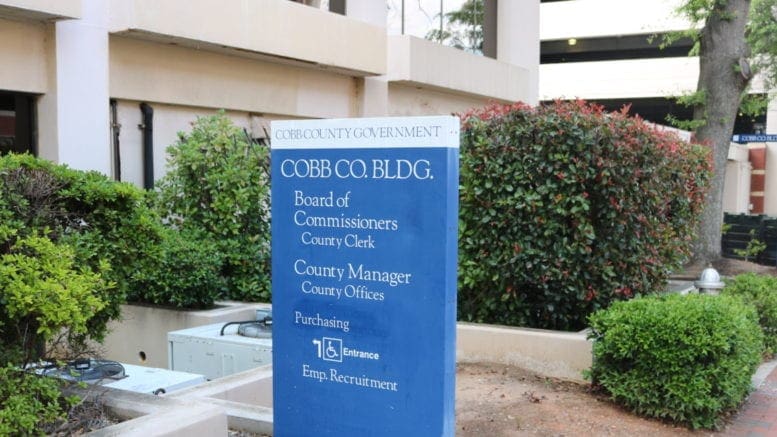In a 4-1 vote, the Cobb County Board of Commissioners voted to accept funds from the settlement reached with pharmaceutical companies Johnson & Johnson, AmerisourceBergen, Cardinal Health, and McKesson about their alleged role in the national opioid crisis.
The only vote in opposition to accepting the settlement was District 1 Commissioner Keli Gambrill, who said during the discussion of the agenda item, “I cannot support this agenda item.”
“While this lawsuit is garnering millions … of dollars, it’s still doing nothing to address how the opioids get onto the streets,” she said. “In addition, I find it interesting, we just had the conversation on the legislative agenda where we didn’t want the legislators passing legislation that required us to fund things in the future.”
“Yet, here we are, we’re going to be taking millions of dollars and starting programs, that down the road once this money runs out, will potentially be expected to be funded through our general budget,” Gambrill said.
To read the settlement itself, along with the list of litigants, follow this link.
For more information, see the county’s new release on the settlement, reprinted below:
Cobb County’s Board of Commissioners expressed support for a statewide framework plan that would allocate Georgia’s share of the $26 billion global opioid settlement deal in Cobb County and across the state. The Board voted 4-1 to sign off on a Memorandum of Understanding (MOU) concerning the opioid settlement deal announced in July with opioid manufacturer Johnson & Johnson and the “Big Three” drug distributors AmerisourceBergen, Cardinal Health, and McKesson.
Cobb County Attorney Bill Rowling told the board their action is the first step in getting these settlement funds moving toward future abatement programs in the county. However, to unlock access to critical opioid abatement funds, Georgia’s Attorney General Christopher Carr and all local agencies around the state must opt-in to the MOU and the global settlement agreement.
“This is a very serious issue in our community today,” said Chairwoman Lisa Cupid. “We have the opportunity to do something with resources or do nothing with resources and watch others do something to combat this epidemic. We are in a position with this settlement to help our own.”
The state could receive more than $630 million as part of the settlement. Local governments would receive 25%, with 75% going to the state. Thereafter, 40% of the state’s allocation must be directed toward regional relief (i.e. areas where the population is over 400,000, including Cobb County). The exact amount is yet to be determined.
Rowling said the majority of the funds would go to programs to deal with the future impacts of the opioid crisis. He said that could include the expansion of current programs already in place. He cited the Fire Department’s program which targets residents involved in opioid abuse, ongoing drug drop-off programs in the county, and treatment programs run by nonprofit agencies.
Cobb’s County Manager plans on forming a working group to determine how best to support proven strategies for opioid abatement should they receive settlement funds.
The opioid epidemic has worsened over the past year. Overdose death rates have spiked across the United States during the COVID-19 pandemic. Over 100,000 Americans died due to overdose in the 12 month period ending in April 2021. According to the Georgia Department of Public Health, the state experienced a 207% increase in opioid-related overdoses between 2010 and 2020. Cobb County alone has lost hundreds of its residents to the opioid epidemic in the last several years and has been one of the hardest-hit counties in the state.
Cobb County is continuing its pursuit for accountability and relief funds in federal court as part of the National Prescription Opiate Litigation. The community is set to appear in court in January 2023 against pharmacy chain defendants, which include CVS, Walgreens, Walmart, Rite Aid, Kroger, Publix. The trial will help determine the pharmacy chains’ liability for fueling the opioid epidemic in Cobb County and will have national implications.
For more information on the proposed global settlement agreement, visit nationalopioidsettlement.com.

